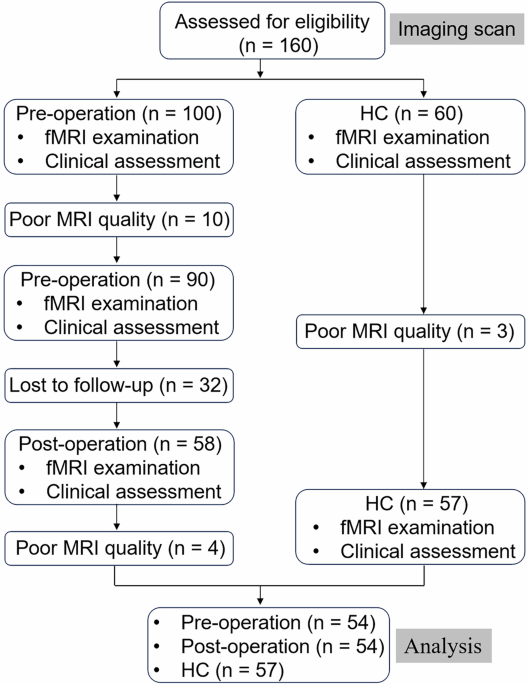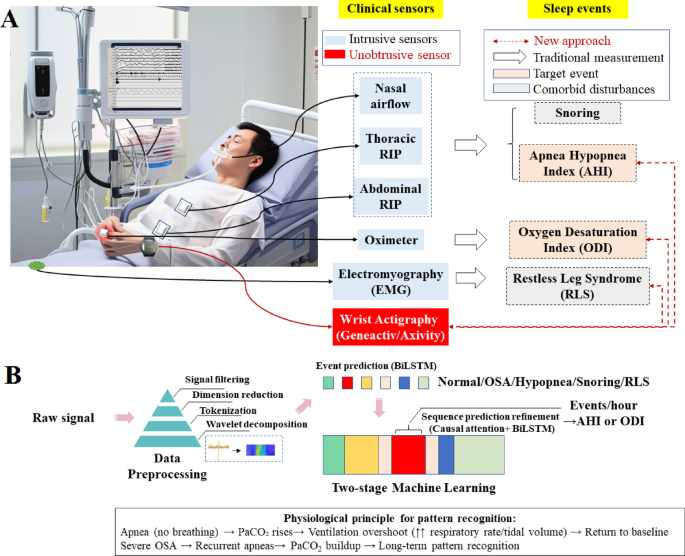Wait…Is Whole Milk Actually Good for You Now? - Chasing Life with Dr. Sanjay Gupta - Podcast on CNN Audio
podcast
All over the world, there are people who are living extraordinary lives, full of happiness and health – and with hardly any heart disease, cancer or diabetes. Dr. Sanjay Gupta has been on a decades-long mission to understand how they do it, and how we can all learn from them. Scientists now believe we can even reverse the symptoms of Alzheimer’s dementia, and in fact grow sharper and more resilient as we age. Sanjay is a dad – of three teenage daughters, he is a doctor - who operates on the brain, and he is a reporter with more than two decades of experience - who travels the earth to uncover and bring you the secrets of the happiest and healthiest people on the planet – so that you too, can Chase Life.

Wait…Is Whole Milk Actually Good for You Now?
Chasing LifeMay 20, 2025
Whole, skim, oat, almond, pistachio…the milk options seem endless! But which one's actually the healthiest? Dr. Sanjay Gupta breaks it down. Plus, if someone’s in the middle of a bad dream, should you wake them? The answer might surprise you.
Dr. Sanjay Gupta
00:00:03
Welcome to Paging Dr. Gupta. This is one of my favorite weekly traditions. I get a chance to hear from you, get a change to answer your health questions. I think of it like my office hours. So welcome to office hours, we don't need to be too formal here, we can be less buttoned up and just chat about the issues that matter to you. And by the way, thank you for sending in all these questions. I feel like we're starting to develop a real conversation, so thank you that! But we got two really fascinating questions we wanna get to. Kyra, take it away.
Hey, Sanjay, so this week's first question is coming from Kevin in Orlando. And he's actually asking something that has sparked a lot of debate among members of the podcast production team. So we definitely wanna know the answer. Take a listen...
Hey, Dr. Gupta. This is Kevin. I'm 54 years old and just wondering if I should be drinking whole milk or skin milk. I have family members that are adamant about drinking skin milk and they don't seem to get enough fat in their diet. I don't know if I do. I am just wondering if it's going to create problems in the long run. I was on almond milk for a long time and about a month ago, I switched to lactose free whole milk. So if you can give me some insight on that and give us some insight, that'd be fantastic. Thank you so much.
Dr. Sanjay Gupta
00:01:14
'Alright, Kevin, this is a great question and honestly, it's something that I think about quite a bit as well. I recently started drinking more milk because I had low calcium at a recent doctor's visit. And that surprised me a little bit, but, you know, I sort of realized that I had not been drinking much milk for many, many years. I drank a lot of milk when I was a kid, maybe even into college, but at some point it just started to drop off. And now as a guy in his mid-50s, I wasn't getting enough. So I've started drinking more milk. I generally drink whatever is in the refrigerator, but this sort of gets us to the question. First of all, there's a lot of options out there, plant-based, all the way to cow's milk, lots of options in between. There are even some that are off the beaten path...pistachio and buckwheat milk, those are supposedly this year's hot new milks. But which is the healthiest? First of all, I think that does depend on what you're hoping to gain nutrient-wise when you pour a glass of milk. What are your objectives here? So let's start by talking about the difference between the plant-based milks, since I know that you said you recently quit almond milk. First of, all milk is not created equal. In fact, candidly, just even using the word milk, I think sometimes is misleading because many of the plant based milk alternatives lack the amount of calcium, which I was looking for, lack the of vitamin D, or other nutrients even, that milk typically has. So when you buy milk, you often think you're getting those nutrients, but some of these plant-based options don't have them. According to the U.S. Dietary guidelines, only soy milk that is fortified with calcium, vitamin A, and vitamin D actually measures up to dairy milk nutritionally, meaning having similar amounts of key ingredients. Other plant-base beverages were not currently, at least, included in that group. So that's just something, again, to keep in the back of mind in terms of what your goals are when you're drinking milk. Doesn't mean those plant-based milks aren't good options for people with allergies or dietary or personal preferences, but it does mean you need to look at the labels closely. When comparing milk options, the things you should look for, protein, that's a building block for bones, muscles, cartilage. Vitamin D, which among other things helps to maintain proper levels of calcium and phosphorus and build-up bones. Calcium, which is used for building bones and teeth. Potassium, which does all kinds of things, including maintaining healthy blood pressure, proper kidney function, muscle function, heart function. And finally, when you're looking at those nutritional labels, look for options that are lower in added sugar and saturated fat. Now, let's talk cow's milk. First of all, nutritionally, that's still the gold standard, particularly when it comes to protein, calcium, and vitamin D. But, not all cow's milk is the same, and I think this gets to the heart of your question, Kevin. One big difference is fat content. The general recommendation is that adults choose fat-free or low-fat milk instead of whole milk to reduce the amount of saturated fat in the diet. And for context, one cup of whole milk contains four and a half grams of saturated fat, and that's about 20% of your daily recommended limit. So one cup whole milk, 20% your daily recommend limit of saturated fat. But at the same time, you need saturated fat, you don't need to totally demonize this.
Extra virgin olive oil is probably the most healthy cooking ingredient in the world. A number of studies show it reduces heart disease, diabetes, cancers in massive studies in Italy and Spain, elsewhere. And you know, that contains up to 14% saturated fat. But it's mixed in with other healthy fats.
Dr. Sanjay Gupta
00:04:54
That's Dr. Tim Spector, a renowned nutritionist who I recently spoke to for my Chasing Life podcast. And we were talking all about protein, but he said that in moderation, full fat dairy like milk can actually, maybe even should actually, be part of a balanced diet. And while this isn't usually true of skim milk, Dr. Spector also pointed out something really important, which is when some food companies remove fat from these quote unquote low fat products, they do sometimes replace it with other ingredients.
'You see these huge aisles, especially in the dairy section of low-fat foods, and most of them are heavily processed. They've replaced the fat with sugary starches, corn starches, extracts, emulsifiers, glues, all kinds of chemical trickery to make you think you're getting that mouthfeel of real fat on your tongue. And these cause more sugar spikes. They're bad for your gut microbes and really should be avoided. And that's this whole new movement about picking up on ultra-processed food, which makes up 60% of the American diet. is often these fake foods that mean we're ingesting a lot of these chemicals, which, you know, once in a while aren't a problem, but if you have them every day for 30, 40 years, certainly are, and they nearly all make you overeat.
Dr. Sanjay Gupta
00:06:22
'So I guess, Kevin, here's the bottom line. Whole milk in moderation can be, maybe even should be, part of a balanced diet, especially if it helps you feel satisfied and you're not overdoing it with saturated fat elsewhere. Again, one cup is about 20% of your recommended daily amount. Now, compared to sugary drinks or overly processed low-fat products, whole milk might even be the better choice for some people. Okay, skim milk does have fewer calories and less saturated fat. But as you just heard it may have other ingredients and it could be lower in some of these key vitamins unless they are added back in. So check for the label, does that skim milk or whatever milk product you're talking about have vitamin A, vitamin D, things like that? Make sure you get enough of the nutrients you need. When we come back we're going to shift gears and hear from a listener named Sarah who's got a question about dreaming. Stick around!
Dr. Sanjay Gupta
00:07:21
And there goes the pager, which means it's time for another question. Kyra, who's up next?
Now, next up we have Sarah from Connecticut. Here she is.
Hi, my name is Sarah. I'm 68 years old. I just listened to the podcast about dreams. Sometimes I will be screaming while I'm sleeping and my spouse always wakes me up. I'm wondering whether it's healthier to keep dreaming or to be woken up. Thanks!
Dr. Sanjay Gupta
00:07:52
Okay, Sarah, thank you for that question. First of all, let me catch people up who maybe didn't catch the podcast episode about dreaming, and then we're going to run over a few basics.
So dreams are the product of the reactivation of memories. To a large extent, they reflect what's going on in your life. They reflect your fears and desires, your challenges. Nothing is just a dream. A dream is something to be paid attention to, something to interpreted, something to shared because it will influence everybody else. And I think we lost that. And that's why I think we should rescue the art of dreaming.
Dr. Sanjay Gupta
00:08:22
That's neuroscientist, Sidarta Ribeiro. He's an internationally recognized leading expert on memory, sleep, and dreaming. Now, when we spoke, he made this really compelling case for why we should all try to get better sleep, but also dream more.
'Sleep has different phases. When you have a full night of sleep, you go through four or five full cycles of sleep. In each cycle you undergo four different states. State one and two are very brief. This is when we are, you know, dozing and then we start dreaming, but those dreams are little clips, they're not really full-fledged dreams. Then we go into phase three, this so-called slow wave sleep. When you're in that state, you don't really dream much. People that are awoken from that state they will report some vague thoughts, you know, I need to pay some bill or something like that. But not a movie, not something with a strong visual impression. Then we go into rapid eye movement sleep, REM sleep, and this is when our brains become really, really engaged in the reactivation of memories.
Dr. Sanjay Gupta
00:09:31
'Now, Ribeiro also pointed out something that might surprise many of us. Even nightmares, as scary or intense as they can be, they're actually a normal part of REM sleep. Now, you may also be surprised to know that when your brain is in this active REM phase, your body is temporarily paralyzed. So that's part of the reason you don't physically act out your dreams. You are in this state of sleep paralysis. But not all scary sleep experiences are actually considered nightmares. Nightmares and night terrors are actually two very different neurological experiences, and understanding that difference matters especially if trying to answer your question, which is, is it appropriate to wake someone up or comfort someone in the middle of one of these episodes? So here's the key distinction: nightmares typically happen during REM sleep, rapid eye movement sleep. That's typically later in the night. If someone wakes up from a nightmare, they're usually alert and they can describe what happend, okay? Night terrors, on the other hand, typically happen during non-REM sleep, and often that means within the first few hours of falling asleep. That's when the brain is sort of shifting between stages. Now, someone having a night terror is not sleep-paralyzed. So they might sit up, scream, thrash, even sleepwalk, but they are still asleep. And unlike nightmares, they usually won't remember it. So why does this matter? How you respond to that could be very different depending on what you're actually experiencing if you're having a nightmare It will likely go unnoticed unless it is intense enough to wake us up. And that's also when we tend to remember them. Now Sidarta said talking about the dream afterward Especially with someone you trust can actually help your brain process it and lead to more restful REM sleep But on the other hand if someone's having a night terror and they're sitting up and moving and screaming, waking them up could actually make things worse. In those cases, experts recommend staying close, making sure the person is safe, but mostly letting the episode pass on its own. I will say this, if these night terrors are happening often and they're affecting your sleep or your day-to-day life, you should probably try and get some help for that, there are treatments for that. Psychologists sometimes use a technique called imagery rehearsal therapy, where you reimagine the nightmare during the day and give it a safer, newer ending. And there was this meta-analysis a few years ago that found this method could be just as effective as certain medications in reducing these sorts of nightmares. It's even something you can try on your own. So if you have a bad dream, actually think about it the next day and then daydream a new ending, an ending where you feel safe and comfortable. So Sarah, I hope that helps. And I hope you're able to look forward to a better night's sleep very soon.
Dr. Sanjay Gupta
00:12:14
'And as always, thanks to everyone who took the time to call in and email a question. I really do love hearing from you. And if you've got a health question you'd like answered, we could answer it on an upcoming show! Record a voice memo, email it to [email protected], or give us a call, 470-396-0832, and leave a message. Thanks for listening. I'll be back next Tuesday.
Dr. Sanjay Gupta
00:12:38
Chasing Life is a production of CNN Audio. Our podcast is produced by Eryn Mathewson, Jennifer Lai, Grace Walker, Lori Galaretta, Jesse Remedios, Sofía Sánchez, and Kyra Dahring. Andrea Kane is our medical writer. Our senior producer is Dan Bloom. Amanda Sealy is our showrunner. Dan Dzula is our technical director and the executive producer of CNN Audio is Steve Lickteig. With support from Jamus Andrest, Jon Dianora, Haley Thomas, Alex Manasseri, Robert Mathers, Leni Steinhardt, Nichole Pesaru and Lisa Namerow. Special thanks to Ben Tinker and Nadia Kounang of CNN Health and Wendy Brundige.











